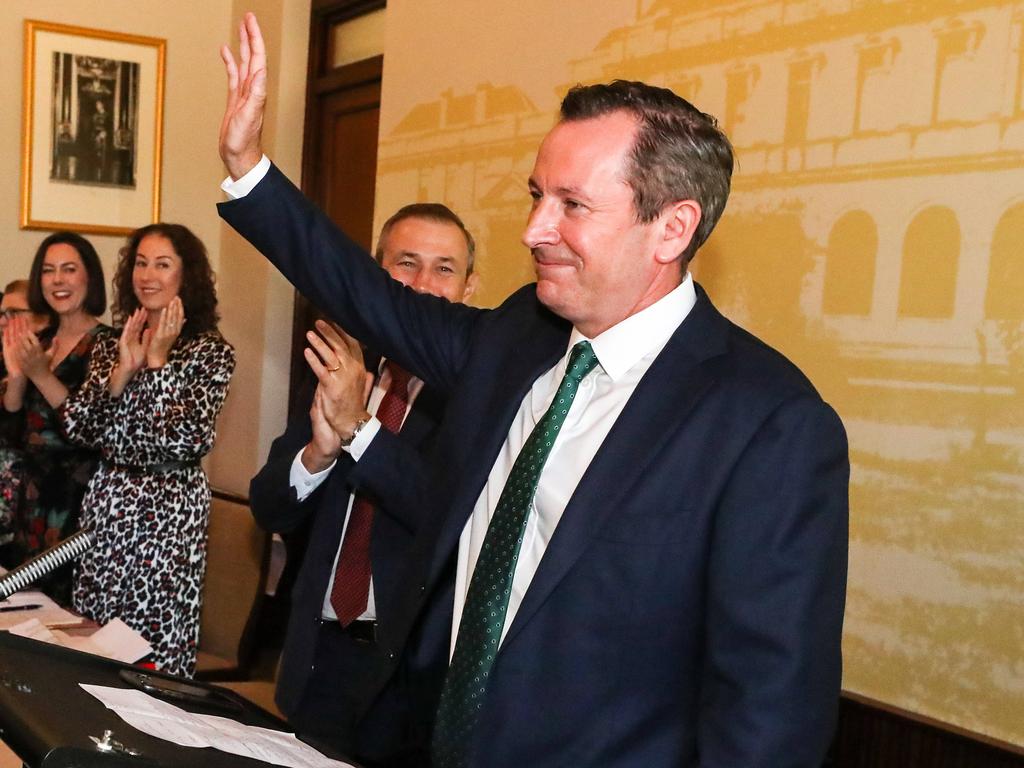Morrison told to try again on industrial relations laws
Josh Frydenberg says eight-year pay agreements for major projects remain on the Coalition’s agenda.

Josh Frydenberg says eight-year pay agreements for major projects remain on the Coalition’s agenda as business urged Scott Morrison not to give up on workplace reform following the stunning defeat of most of the government’s industrial relations bill.
In the face of Senate opposition, the Coalition gutted key elements of the bill, junking proposals to criminalise wage theft and managing only to pass casual employment measures that will largely benefit business.
Major employer groups called on the government to try to revive the ditched components in coming months, claiming business would be left with inflexible, complex awards and an enterprise bargaining system that was “withering on the vine”.
“It is vital that the government does not give up on IR reform,” Australian Industry Group chief executive Innes Willox said. “To do so would send a terrible message to small and large businesses.
“The enterprise agreement system is widely recognised as being a mess, Australia’s award system is ridiculously complicated and Labor supported the idea of project-life greenfields agreements before the last election.”
After Senate crossbencher Stirling Griff revealed he would use his deciding vote to oppose employer-backed changes to enterprise bargaining, awards and greenfields agreements, the government retaliated by dropping the wage theft measures, leaving the casual employment changes as the one key element of the bill to pass the Senate.
The Treasurer nominated the proposal for eight-year greenfields agreements as one area the government could “rethink” and pursue, telling the ABC the deals would stop employers being “held to ransom” when they negotiate enterprise agreements halfway through the life of a major project.
Mr Morrison said the government had proposed sensible and modest measures in good faith but Labor and many senators had decided to obstruct the “job-making initiatives”.
Unions attacked new measures that will reduce the liability of employers found to have misclassified casuals and create a new casual definition, while giving casual employees in medium and big businesses greater rights to seek permanency. Senator Griff’s support for those provisions provoked a public split with his Centre Alliance colleague Rebekha Sharkie, who said she did not support him backing the proposals.

Australian Council of Trade Unions secretary Sally McManus said while unions had successfully campaigned to stop the worst aspects of the bill, the government had ensured casual work would stay insecure, with no viable path to ongoing work and no ability for workers to enforce their rights.
She said the dropping of the wage theft provisions was a “shameful and vindictive reaction” by the government after it failed to get support for changes that she said would reduce the rights of workers.
Acting Industrial Relations Minister Michaelia Cash insisted the changes relating to casual workers were the “most critical elements of the legislation”, protecting employers from double-dipping back pay claims which she said had the potential to cost jobs and bankrupt businesses.
Business Council chief executive Jennifer Westacott said the failure to implement the changes, especially to the enterprise bargaining system, condemned Australia to the slow lane and workers to lower wages.
“The reforms were very modest, but they would have revitalised the EBA system, which now faces a slow and painful death,” Ms Westacott said. “It beggars belief that the Labor Party, which established the EBA system during the Hawke/Keating era, has walked away from Australian workers.”
Labor industrial relations spokesman Tony Burke said the one element of the industrial relations changes that had “survived a humiliating rout in the Senate will leave Australia’s casual workers worse off”. “The government ripped out wage theft provisions from its legislation out of pure spite … they knew they had the numbers to easily pass that element of the legislation,” he said. “Instead they decided to give wage thieves a free pass as part of a tantrum about losing other elements of the bill.”
The Australian Chamber of Commerce and Industry, Master Builders Australia and the Australian Mines and Metals Association said it was important the government did not abandon the defeated parts of the bill and further efforts were needed to secure support for the changes.








To join the conversation, please log in. Don't have an account? Register
Join the conversation, you are commenting as Logout